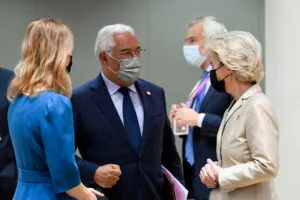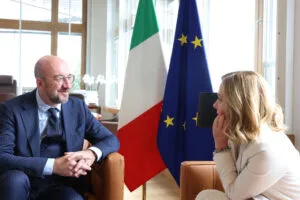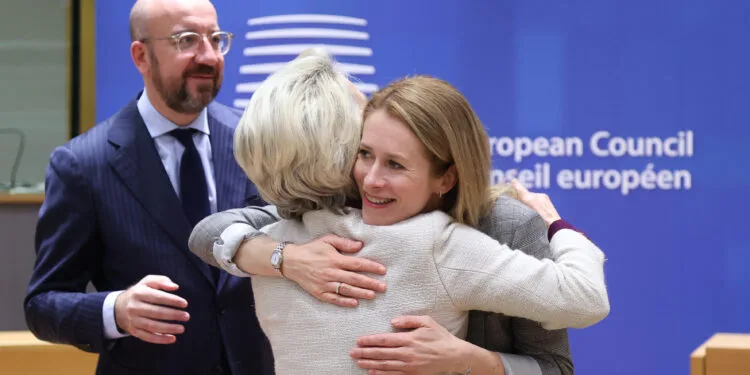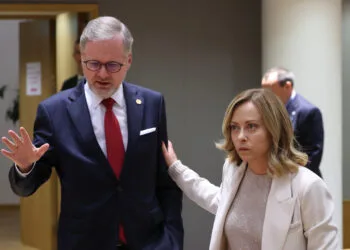Brussels – Ursula von der Leyen at the European Commission, António Costa at the European Council, Kaja Kallas as EU High Representative for Foreign Affairs and Security Policy. There is an informal understanding among the six negotiators from the three European political families that hold the centrist majority in the European Parliament (Populars, Socialists, and Liberals) on the appointments of the heads of the Union’s major institutions, and now it can proceed to the table of the 27 EU leaders for the final confirmation.

As several diplomatic sources let Eunews know, the package of names that have been circulating in Brussels for the past two weeks—and on which discussions had begun at the June 17 informal dinner—has found support from all six negotiators who met today (June 25) by videoconference to draw the conclusions on EU appointments before the Thursday-Friday (June 27–28) European Council: Greek Prime Minister, Kyriakos Mitsotakis, and Polish Prime Minister, Donald Tusk (for the European People’s Party), German Chancellor, Olaf Scholz, and Spanish Prime Minister, Pedro Sánchez (for the Party of European Socialism), the French president, Emmanuel Macron, and the Dutch prime minister, Mark Rutte (for Renew Europe).
At this point, the names of incumbent EU Commission President von der Leyen, Portuguese ex-premier Costa, and Estonian Prime Minister Kallas (with only an informal green light to the confirmation of popular Maltese Roberta Metsola as president of the European Parliament, as her election is the sole responsibility of the 720 MEPs) must be endorsed by a reinforced qualified majority of the heads of state and government of the 27 EU member states at the European Council, as laid down in the Treaties. A qualified majority is achieved if two conditions are met simultaneously: if 72 per cent of the member states vote in favour (thus at least 20) and if they represent no less than 65 per cent of the total population of the Union. The six negotiators who also head the six governments in favour (Greece, Poland, Germany, Spain, France, and the Netherlands) will need to cash in on the support of other EU leaders this week, but not necessarily all of them. The Hungarian Prime Minister, Viktor Orbán, has already lashed out against the deal, but this time he will not be able to exercise his veto.

The Italian Prime Minister, Giorgia Meloni, had almost no room for manoeuvre on the proposed names. Negotiators will also try to secure the backing of a country like Italy, but Meloni’s real game will be played in the hemicycle of the European Parliament. When the 720 MEPs will have to vote to support the new EU Commission chairmanship (if the decision of the twenty-seven comes next week, it could be scheduled as early as the July 16-19 inaugural session), the majority composed of Populars, Social Democrats, and Liberals will count on 400 seats (with 88 among new members and non-attached members who do not yet have a political home in the Euro Chamber). The minimum threshold is 361, but the risk of turncoats during the secret ballot — even in the event of von der Leyen’s encore — could push the Populars to look to the 24 MEPs of Fratelli d’Italia for support in the vote, as the Polish ultraconservatives of Law and Justice (PiS) did in 2019 the first time the German politician showed up at the Strasbourg plenary.
English version by the Translation Service of Withub






![Un campo coltivato [foto: imagoeconomica]](https://www.eunews.it/wp-content/uploads/2025/04/campo-coltivato-120x86.png)
![[foto: Wikimedia Commons]](https://www.eunews.it/wp-content/uploads/2025/04/alzheimer-120x86.png)

